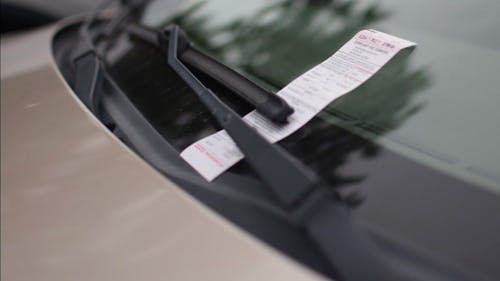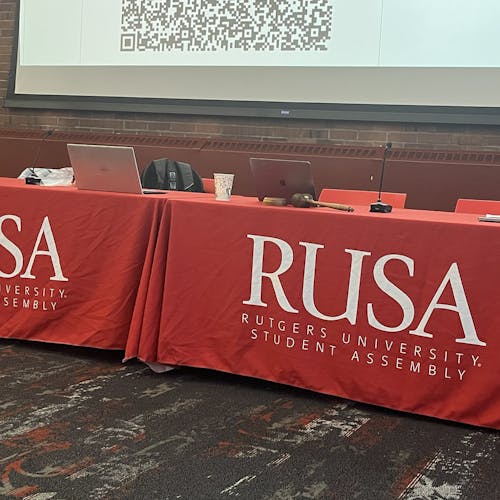Rutgers students pay millions in parking tickets each year — here's where the money goes

With millions of dollars collected in parking tickets at Rutgers each semester, many students have brought up a single question — what is the money used for?
According to officials, the money that students spend on campus permits and pay in parking violations helps replenish the Department of Transportation’s budget and increase traffic efficiency. Money collected by the City of New Brunswick, on the other hand, is typically used to promote constant flow throughout the city’s parking meters.
Rutgers parking tickets are issued by the University, while New Brunswick tickets are issued by the city, said Jack Molenaar, the senior director of the Department of Transportation.
“A University parking ticket is given under general education law for protecting our property,” he said. “We can’t impound a vehicle and we can’t put out a warrant for someone’s arrest.”
Ticket prices range anywhere from $20 for an expired meter with the most expensive being $300 for use of a fraudulent or stolen permit, according to their site.
People who are not affiliated with the University are still responsible for paying parking tickets, Molenaar said. These people are at risk to have their vehicles towed for any parking violation more than $200. Anyone found with an outstanding debt is transferred to a collection agency.
The turnaround rates for tickets vary by situation, Molenaar said. Every ticket is different and takes into account different variables such as location, number of tickets received by the vehicle prior and if the individual is a repeat offender.
“People sometimes appeal tickets and sometimes they let it go. It’s everything in between,” he said.
The money accumulated from tickets supports the transportation services budget, the bus budget, lot maintenance, plowing and more, Molenaar said.
“The percentage of people that are not compliant versus are complaining is probably somewhere around less than 15 percent,” he said. “The people that don’t comply subsidize the ones that do.”
Molenaar said if ticket enforcement was not upheld then permit prices would rise. If the rules were not upheld, no one would buy permits.
Permits are always available to students but are limited on College Avenue, Molenaar said. This is done in order to cut down the number of students driving to class and ease traffic flow that builds throughout campus.
“We have enough parking on Livingston campus to handle this, otherwise we’d have to build more parking decks and <g>I'd</g> have to raise the price of permits to cover the cost of that construction,” he said.
Molenaar said to consider everyone who rides University buses and imagine if 25 percent of those people were allowed to park on any campus. He said the <g>policy</g> was much less restrictive prior to his time at the Department of Transportation, and that his administration has managed to significantly reduce traffic.
Nine new parking structures will also be built as part of the University's Transportation Master Plan, Assistant Director of Public and Media Relations Neal Buccino told The Daily Targum in early September.
Molenaar said adjustments of College Avenue entrances and shifting toward lots on other campuses is part of that plan.
In regards to street parking, Mitch Karon, the executive director of the New Brunswick Parking Authority (NBPA), said Rutgers police can issue parking tickets for state regulation violations such as parking in a crosswalk or in front of a hydrant. The NBPA enforces both state and municipal parking regulations within the boundaries of New Brunswick parking spaces.
Money from parking tickets and meters helps offset the<g><g></g> cost</g> of the enforcement department that issues tickets, Karon said.
In 2016, approximately 74,000 summonses were issued by the NBPA, Karon said. The fines were split between the state, city and the authority. The authority receives $4 for every paid ticket.
Meter fees are based on demand promote turnover of parking spaces, Karon said. <g>Ideally</g>, it is suggested that there be a 15 percent vacancy rate at meter spaces. Pricing is geared to achieve this percentage.
In regard to visitor parking Karon said that free parking will cause vehicles to occupy spaces all day and would not promote enough turnover for others that need to park.
“Street parking produces increased street traffic as motorists search for parking spots," he said. “Many of the city’s new construction projects include off street parking within a parking garage to reduce the need to drive in search of parking space.”
Christian Zapata is a School of Arts and Sciences junior. He is a correspondent for The Daily Targum



